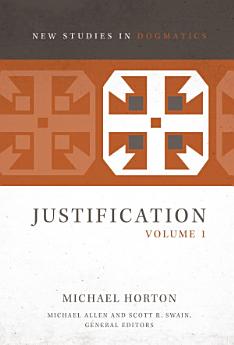Justification, Volume 1
આ ઇ-પુસ્તક વિશે
The doctrine of justification stands at the center of our systematic reflection on the meaning of salvation and grace as well as our piety, mission, and life together. And yet, within mainline Protestant and evangelical theology, it's often taken for granted or left to gather dust in favor of modern concerns and self-renewal.
Volume 1 is an exercise in historical theology, exploring the doctrine of justification from the patristic era to the Reformation. This book:
- Provides a map for contemporary discussions of justification, identifying and engaging principal sources: Origen, Chrysostom, Augustine, Thomas Aquinas, John Duns Scotus, William of Ockham, Gabriel Biel, and the magisterial reformers.
- Studies the transformations of the doctrine through Aquinas, Scotus and the nominalists leading up to the era of the Reformation and the Council of Trent.
- Concludes by examining the hermeneutical and theological significance of the Reformers' understanding of the law and the gospel and the resultant covenantal scheme that became formative in Reformed theology.
Engaging and thorough, Justification will not only reenergize the reader—whether Protestant or Catholic—with a passion for understanding this essential and long-running doctrinal conversation, but also challenge anyone to engage critically with the history of the Church and the heart of the gospel.
લેખક વિશે
Michael S. Horton (PhD) is the J. Gresham Machen Professor of Systematic Theology and Apologetics at Westminster Seminary California, founder and editor-in-chief of Sola Media, and host of the White Horse Inn, a weekly roundtable podcast on theology and culture. He is the author of more than thirty books, including Justification: Volumes 1 and 2 in Zondervan Academic’s New Studies in Dogmatics and The Christian Faith: A Systematic Theology for Pilgrims on the Way.
Michael Allen (PhD, Wheaton College) is the John Dyer Trimble Professor of Systematic Theology and Academic Dean at Reformed Theological Seminary, Orlando, FL.
Scott Swain is Professor of Systematic Theology at Reformed Theological Seminary in Orlando, Florida. He is author of several books, including The God of the Gospel: The Trinitarian Theology of Robert Jenson, and Trinity, Revelation, and Reading: A Theological Introduction to the Bible and its Interpretation. He serves as general editor (with Michael Allen) for T&T Clark’s International Theological Commentary and Zondervan’s New Studies in Dogmatics series.







